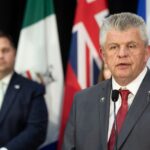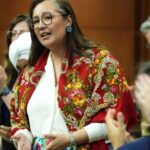The prairie winds carry more than just seasonal change across Western Canada these days—they’re laden with renewed conversations about provincial autonomy that have resurfaced with surprising vigor. Alberta’s long-simmering separatist sentiment has reached a boiling point in 2024, triggering reactions from neighboring British Columbia that reveal a complex web of regional allegiances and divisions.
“Alberta’s frustrations with Ottawa aren’t entirely misplaced,” acknowledges Dr. Morgan Finley, political scientist at the University of British Columbia. “But the leap from legitimate grievance to separation creates a dangerous fracture in our national framework that many British Columbians simply cannot support.”
Recent polling from the Western Canada Institute shows that while 68% of British Columbians reject the concept of Alberta separation, nearly 42% express understanding for the underlying economic concerns driving the movement. The province’s relationship with Alberta has historically balanced cooperation with competition, particularly regarding resource development and environmental policies.
Premier Danielle Smith’s “Alberta Sovereignty Act” continues to serve as a lightning rod for these tensions. Though falling short of outright separatism, the legislation’s assertion of provincial authority against federal overreach resonates differently across provincial borders. In British Columbia’s resource-dependent northern communities, Smith’s stance finds more sympathy than in the environmentally-conscious urban centers of Vancouver and Victoria.
“The urban-rural divide in B.C. mirrors Alberta’s own internal tensions,” explains Kathleen Walters, economic analyst with the Pacific Policy Centre. “Communities whose livelihoods depend on resource extraction often share more values with Albertans than with fellow British Columbians in metropolitan areas.”
The economic interdependence between the provinces complicates the debate. British Columbia’s ports serve as crucial export gateways for Alberta’s energy products, while Alberta’s robust economy provides significant market opportunities for B.C. businesses. Any disruption to this relationship would create economic ripples far beyond provincial borders.
Federal policies on carbon pricing and energy project approvals have intensified Alberta’s separatist rhetoric, but B.C.’s response demonstrates the limitations of regional solidarity. When Premier Smith hosted a Western premiers’ conference in Edmonton last month, her B.C. counterpart David Eby maintained a delicate balance—acknowledging Alberta’s grievances while firmly rejecting separation talks.
“We share concerns about federal overreach in provincial jurisdiction,” Eby stated after the meeting. “But dismantling Confederation isn’t a solution that serves anyone’s long-term interests.”
Indigenous leaders across both provinces have introduced another critical dimension to the conversation. Grand Chief Stewart Phillip of the Union of B.C. Indian Chiefs recently emphasized that separation discussions ignore the fundamental reality that these territories remain subject to unresolved Indigenous title and rights claims.
“Provincial borders are colonial constructs,” Phillip stated during a recent conference in Vancouver. “Any conversation about redrawing those lines must center Indigenous sovereignty as the first principle.”
The economic context driving these tensions continues to evolve. Alberta’s unemployment rate sits at 6.3%, while provincial GDP growth has slowed to 1.8% in the latest quarter—figures that both fuel grievance politics and raise questions about the practical viability of independence.
Political observers note that the true test of separatist sentiment will come not in rhetorical flourishes but in electoral outcomes. Neither province has elected explicitly separatist representatives to their legislatures, suggesting the movement remains more powerful as a negotiating lever than as a genuine political aspiration.
As this distinctly Canadian political drama unfolds, the fundamental question emerges: can legitimate regional grievances find resolution within our federal system, or does the growing gulf between Western Canada and Ottawa signal a more permanent fracturing of national unity?

























